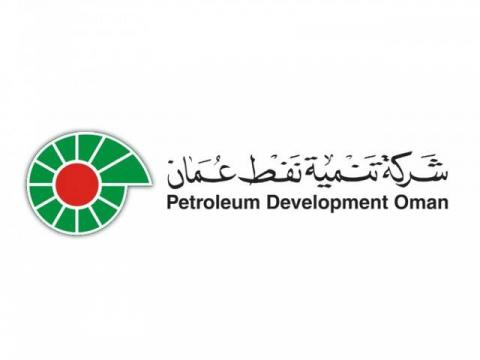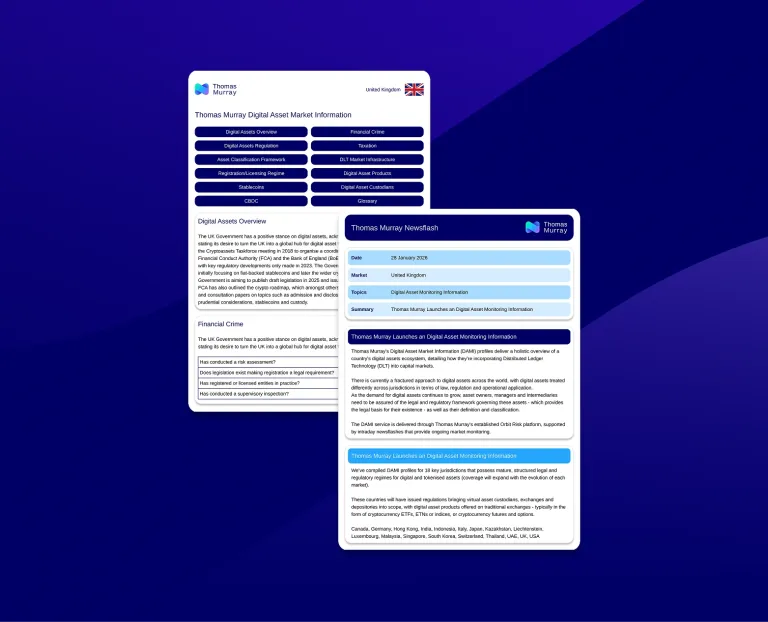Feature: Evaluating a CSD in North Macedonia
Thomas Murray’s Financial Market Infrastructure (FMI) team was approached by a European central securities depository (CSD) for a risk assessment. As CSDs are a key component of the global marketplace, such an assessment requires specialist knowledge and a level of detail even beyond that which goes into scrutinising a bank.
Gary King and Weronika Kruk performed the evaluation and were kind enough to answer our questions about how the process works, what’s involved, and what role the Risk Committee plays in signing off these assessments.
Bulgaria
The Bulgarian market has seen a low volume of initial public offerings (IPOs), primarily limited to bond issuances, and Bulgaria continues to face challenges with liquidity. However, the country is making significant strides towards joining the Eurozone and changing its currency. Recent reports indicate that Bulgaria did not meet the inflation criteria, potentially delaying this transition. Nevertheless, there is optimism that the inflation target will be achieved by the end of the year, paving the way for Euro adoption by 1 January 2025.
In a bid to modernise its financial markets, Bulgaria is planning to introduce a centralised securities lending platform to address trade fails and to gradually introduce a derivatives market. Additionally, a new instrument for bond issuances with smaller lot sizes is being developed to attract retail investors.
India
Foreign portfolio investors (FPIs) have maintained a net buyer stance throughout 2023 and into 2024, with a sizeable portion of net inflows from January to May 2024 attributed to debt. This trend is driven by the anticipated inclusion of Indian government bonds (G-Secs) in major global debt indices.
From 28 June 2024, JPMorgan will incorporate G-Secs into its Emerging Market Local Currency Debt Index, with expected inflows of approximately US$25bn over a 10-month period. Additionally, Bloomberg Index Services Limited (BISL) plans to add G-Secs to the Bloomberg Emerging Market Local Currency Index from 31 January 2025.

The Securities and Exchange Board of India (SEBI) is actively working to streamline regulatory processes for investors. Discussions with key market stakeholders focus on expediting and simplifying the FPI registration and exit processes. SEBI is also in discussions with tax consultants as to how to expedite and facilitate the repatriation of funds at the earliest, as tax consultants must provide a tax confirmation certificate before any repatriation can be processed. This is under evaluation and will help to improve the T+0 settlement cycle process.
On 28 March 2024, SEBI launched a pilot for an optional T+0 settlement cycle involving 25 select scrips. This initiative seeks to enhance market liquidity and reduce counterparty risk by enabling same-day availability of cash and securities. SEBI will evaluate the pilot’s progress at three and six-month intervals and determine subsequent steps in collaboration with stakeholders. Notably, custodian clients are currently out of scope, which includes the foreign institutional client base. Future considerations include transitioning to an instantaneous settlement model, but this would similarly be optional.
Custodians are awaiting SEBI’s operational blueprint for the T+0 settlement cycle to assess necessary adjustments to their processes and systems. Initial T+1 settlement volumes were high during the first two days post-launch but have since declined, with limited interest observed from FPI clients. Potential operational challenges include managing parallel settlement cycles, pre-funding trades for clients in certain time zones, price premiums or discounts between segments, and liquidity fragmentation.
A significant issue under review is the derecognition of six Indian CCPs by the European Securities and Markets Authority (ESMA). This action follows the RBI’s refusal to grant audit and inspection rights to a foreign regulator. Consequently, these CCPs cannot provide services to clearing members and trading venues established in the EU without extremely high capital buffers being maintained by each member. The implementation deadline has been postponed to the end of October 2024, with ongoing negotiations between the Indian regulators and ESMA. The potential outcomes include reaching a mutual agreement allowing EU entities to continue their current operations, extending the compliance deadline, or necessitating EU entities to offer services through their Indian subsidiaries.
Kazakhstan
Kazakhstan’s economy showed robust growth of 5.1% in 2023, demonstrating resilience and adaptability to new conditions. Although the growth rate is expected to moderate in 2024, the World Bank anticipates a rebound in 2025 due to increased oil production.
The oil sector, crucial to Kazakhstan’s economy, experienced stagnant production volumes in early 2024 due to OPEC+ agreement obligations. However, rising oil prices as a result of geopolitical tensions have had a positive effect on the trade balance.
Several sectors showed positive signs of growth in 2023, including construction, trade, information and communication services, and general industry. The manufacturing sector continued to be a primary driver of industrial growth in early 2024, expanding by 5.6%.
The banking sector experienced a boost in 2021 and early 2022, with retail lending growing over 40% and corporate lending increasing by 30%. Even so, it faces significant challenges:
High levels of non-performing loans (NPLs): Although the NPL ratio decreased from around 30% in 2008-2013 to 6.7% at the end of 2016, it remains a significant issue for some of the largest banks in the country.
Reluctance to finance the corporate sector: Banks are hesitant to lend more actively to businesses due to high credit risk stemming from structural issues in the economy.
Underdevelopment: The banking sector and capital markets in Kazakhstan are considered underdeveloped, with the country ranking 98th on the World Economic Forum’s financial sector indicator.
Limited stock market activity: There is only a small number of companies actively trading on the Kazakhstan Stock Exchange (KASE), with weak trading, clearing, and settlement infrastructure.
Small investor base: The local institutional and retail investor base is limited, contributing to the underdevelopment of capital markets.
Shallow banking sector: Despite increasing efficiency, Kazakhstan’s banking sector is considered shallow for its level of economic development.
Shortages of lendable funds: This is cited as the main constraint on the financial sector's ability to support economic growth.
Government subsidies: Prevalent government subsidies in the financial sector are distorting the market and undermining its potential role in driving economic growth.
Foreign direct investments (FDIs) reached US$19.7bn in the first nine months of 2023, with over US$11bn allocated to non-resource sectors. However, investment in fixed capital went through volatile shifts in early 2024, with a sharp drop of 0.8% in the first quarter.
The trade balance improved in early 2024, increasing by US$0.7 billion compared to the previous year. Exports grew modestly by 0.4%, while imports decreased by 7.4%.
The government aims to maintain inflation within the 6-8% range in 2024, and is focused on diversifying the economy, fostering entrepreneurship, attracting investments, and improving citizen well-being to achieve sustainable development.
The country's economic outlook remains cautiously positive, with efforts underway to address these challenges and maintain growth momentum.
Portugal
The Portuguese market currently shows a moderating but still positive economic outlook. Economic growth is expected to slow to 1.7% by the end of the year, before rebounding slightly to 1.9% in 2025. This moderation comes after stronger growth of 2.3% in 2023. The economy is transitioning towards more domestically driven growth, with private consumption and investment becoming the main drivers.
Other key economic indicators for Portugal include:
Inflation, which is projected to decrease from 2.3% in 2024 to 1.9% in 2025.
Unemployment, which is expected to remain relatively stable into next year (at around 6.5%).
The government budget is forecast to maintain a surplus, though decreasing from 1.2% of GDP in 2023 to 0.4% in 2024 and 0.5% in 2025.
Public debt as a percentage of GDP is projected to continue declining, from 99.1% in 2023 to 91.5% by 2025.
E-commerce is also expanding, with Portugal ranking as the 49th largest e-commerce market globally.
Investment in Portugal is expected to grow at a strong pace, supported by the implementation of the Recovery and Resilience Plan and improved economic sentiment.
Romania
Romania’s capital markets received a boost with the IPO of Hydroelectric, a major public energy company, in 2023. This significant event substantially increased the market capitalisation. However, liquidity issues persist as only a small fraction of shares were made available for public trading. Over the past two to three years, Romania has been upgraded in several indices and is working towards further advancements, including an attempt to join the MSCI Emerging Market Index.
A central element of Romania's capital market enhancement strategy is the insistence on introducing a central counterparty clearinghouse (CCP). Despite market participants’ reservations about the timing, the broader strategy includes establishing a CCP to bolster market infrastructure.
Sri Lanka
After two consecutive years of contraction, Sri Lanka’s economy is expected to close 2024 on a rebound. The country experienced 1.6% growth in Q3 2023 and 4.5% growth in Q4 2023, marking a turnaround after six quarters of contraction.
The economy is projected to grow by 4% in real terms in 2024, an upward revision from previous estimates.
After declining to single-digit levels in July 2023, inflation remained relatively low. However, there has been a recent spike, with headline inflation reaching 5.9% in February 2024 due to increases in food prices and pass-through of fuel and utility prices.
Last year, Sri Lanka recorded a current account surplus for the first time since 1977. This surplus is expected to continue in 2024. This improvement is due to better remittances and tourism, along with subdued imports.
Usable official reserves have improved to about two months of imports (FX reserves went up to US$5.5bn by end-April 2024, a significant increase from US$500m in December 2022).
All of Sri Lanka’s bilateral creditors, including India and China, have given in-principle approval for debt restructuring. However, the actual restructuring process will likely extend throughout 2024, and the country is expected to remain in default during this period.
The economy continues to face challenges, including high public debt, the need for structural reforms, and potential political instability due to upcoming elections (which, according to the constitution, must be held sometime between 17 September and 16 October 2024).
The latest key market development was on 10 June 2024, with the implementation of the T+2 settlement cycle for equities transactions. Key procedural changes included the change of trade affirmation market deadline from 2.00 pm T+1 to 1.30 pm T+1 and the abolishment of the trade reinstatement process in case of rejections.
Following the change to the T+2 settlement cycle, the Colombo Stock Exchange and the Central Depository Systems will start working on the feasibility of moving to a T+1 settlement cycle, but this is being treated as a two-year project on which analysis will begin later this year or early 2025.
Another key topic is the implementation of a central counterparty (CCP) for equities. While there has been no formal announcement regarding a go-live date, the exchange and the depository have made considerable progress and the development of a CCP is said to be approaching its final stage.
Turkey
Turkey’s economy showed robust growth in 2023, with an estimated year-on-year GDP increase of 4.5%. The government projects a growth rate of 4.4% for 2024, though the IMF expects it to slow to 3.25%.
Turkey continues to battle high inflation, with the official rate at approximately 70%. This has significantly impacted the purchasing power of Turkish citizens. The lira has experienced substantial depreciation, losing about 81% of its value against the US dollar since April 2019.
After the May 2023 elections, a new economic management team put in place tighter monetary and fiscal policies. The central bank has raised interest rates significantly, with the current policy rate at 50% as of March 2024.
Turkey faces several economic challenges, including high interest rates hampering private consumption, the need for fiscal discipline, and structural issues affecting private investment. Its trade relationship with Russia, which became Turkey’s largest trading partner in 2022, has led to sanctions on some Turkish companies.
While there are signs of economic stabilisation and recovery, experts suggest caution. The success of current economic policies and the ability to address structural issues will be crucial for Turkey’s economic outlook in the coming years.
In case you missed it ...
Liquidity in Ghana and Zambia – Many African nations face challenges with their foreign exchange flows. Using Ghana and Zambia as examples, Caroline McCreadie looks at the real-world impact such issues can have on economic growth and market development.
Vladimir in Vietnam – Russian President Vladimir Putin’s trip to North Korea captured the headlines in June, but fewer column inches were given to his equally cordial trip to Vietnam, as Russia continues to reignite its Cold War-era relationships. (BBC)
T+1 settlement series now available as a free eBook – Our very well received articles on how the move to T+1 is affecting North America, Europe, Asia Pacific, Africa and the Middle East, and the LATAM regions have been assembled into a handy eBook. You can download it for free here.

Risk Committee Updates
Stay informed with Thomas Murray for the latest on market dynamics and regulatory trends – subscribe to Risk Committee Updates on LinkedIn.
We safeguard clients and their communities

Petroleum Development Oman Pension Fund
“Thomas Murray has been a very valuable partner in the selection process of our new custodian for Petroleum Development Oman Pension Fund.”

ATHEX
"Thomas Murray now plays a key role in helping us to detect and remediate issues in our security posture, and to quantify ATHEX's security performance to our directors and customers."

Northern Trust
“Thomas Murray provides Northern Trust with a range of RFP products, services and technology, delivering an efficient and cost-effective solution that frees our network managers up to focus on higher Value activities.”
Insights

Why 72 hours is the New Standard for M&A Cyber Due Diligence
A decade ago, cyber due diligence sat somewhere between “nice to have” and “we’ll deal with it post-close.” That world no longer exists.

Thomas Murray Launches Digital Asset Market Information (DAMI)
Thomas Murray, a global leader in risk management, due diligence, and cybersecurity services, is proud to announce the launch of Digital Asset Market Information (DAMI).

Solving the "Scale Paradox": How to Automate Portfolio Oversight with Fewer People
In 2026, private equity technical teams are facing a "Scale Paradox": portfolios are growing in complexity, while in the internal teams responsible for operations and cybersecurity oversight, headcounts remain stagnant.

How Private Equity Hackers Choose Their Targets
Private equity firms sit at the intersection of high-value financial transactions, sensitive deal data, and an expanding portfolio of technology heavy portfolio companies – and it’s this combination that makes PE an attractive target for cyberthreat actors.

